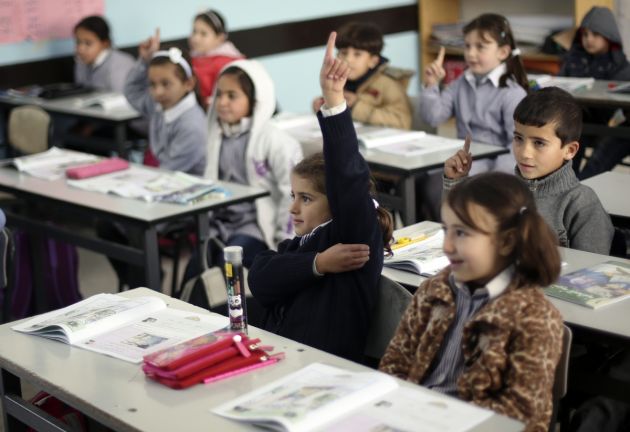Peace and tolerance high on Quaker Palestine school curriculum

Joyce Ajlouny is at times painfully aware of the tenuous situation in which her school sits.
"While I wanted to share how our elementary school students were enjoying the new safe landscaped areas and sports fields, children were being killed by Israeli bombardment," she wrote in the last edition of the school newsletter.
"And while I was going to talk about the proud parents and their active engagement with the school, I thought of the hundreds of mourning mothers and fathers in Gaza."
Ajlouny, a Palestinian-American Quaker, is director of the Ramallah Friends School.
It's a Quaker school located in the West Bank - though she currently lives in Bethesda, Md., to promote her year-long campaign to establish a North American development program for the school.
Sunday afternoon, Ajlouny will visit the Sandy Spring Friends Meetinghouse in Sandy Spring, Md., to provide an update about the historic Ramallah Friends School and what life is like in the West Bank.
The Ramallah Friends School, run by the Friends United Meeting, opened in 1889 as an all-girl elementary school, following two decades of Quaker-run girls' schools in the surrounding villages.
A boys' elementary school was added in 1901, and almost a century later, in 1990, the school was converted into a co-ed elementary and high school.
In 1999, the Ramallah Friends School became the first Palestinian school to offer the International Baccalaureate diploma.
Today, the school has 1,200 students, 45 percent of which are Palestinian-American.
Classes are taught in Arabic and English, with an emphasis on the Quaker values such as peace, tolerance, creativity and simplicity.
Palestine's Quaker community dates back to the late 19th century, though it is small today. Yet the Ramallah Friends School continues to be an innovative Palestinian voice.
The school has an organic garden from which it sells produce, and in 2012, Ajlouny helped secure funds from the UN Development Programme and GIZ, Germany's development bank, to create a green room made of recycled waste materials.
In a recent report, Ajlouny shared that she is "optimistic" about the possibilities for the school's future.
Ajlouny will spend the rest of April and May speaking at Quaker meeting houses in Maryland and Pennsylvania.